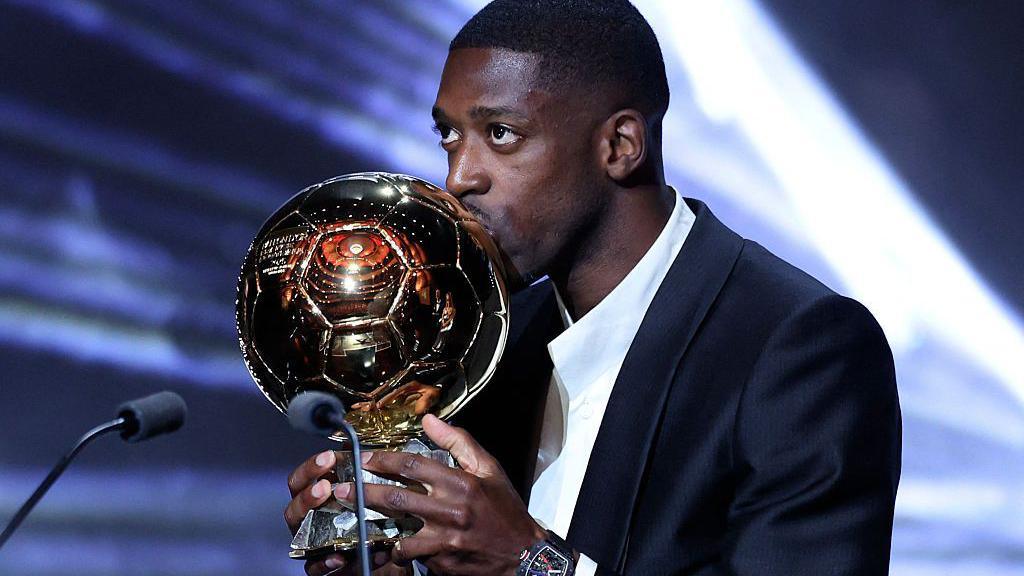The U.S. Soccer Federation released its analysis of men's and women's Division I college soccer last week. Their main argument is clear from the report's title: "Ensuring College Soccer Thrives in the Modern Era of College Athletics and the Changing U.S. Soccer Landscape."

Breaking down the Truths of the European Super League
The last 24 hours in football have been a whirlwind of outcry, complaints, memes, jokes, vibes, and protests about the state of the sport in the aftermath of the announcement of the European Super League. Unfortunately, at the root of this movement is a whole lot of misinformation that make the league seem far worse than it actually is.

So, let's break down what the European Super League is and uncover the truth behind this new league and the state of the game.
The European Super League is a new competition starting in the 2023-24 season. Twelve of the most popular and historically dominant teams in Europe announced that they are founding members of the league. Those clubs are Arsenal, Chelsea, Liverpool, Manchester City, Manchester United, Tottenham, Inter Milan, Juventus, AC Milan, Atletico Madrid, Barcelona, and Real Madrid. Eight additional teams will be announced later, bringing the total to 20 clubs.
The controversy is that UEFA and FIFA, the regulators of World and European football, do not support the league. They are threatening to ban these clubs and their athletes from all other sanctioned competitions. But the clubs went ahead and did it anyway. The sporting world is in shock in that it is unheard of in professional sports for the most powerful clubs to cut out the middle man and create their own competition.
On the surface, it looks awful and selfish. But in life, we must look beyond the surface.

At the foundation of the misinformation are rumors claiming that the 12 clubs that agreed will be leaving their domestic competitions for the new league. So no more La Liga for Atletico Madrid, Barcelona and Real Madrid, no more Serie A for the three Italian clubs, and no more Premier League for the big six.
That could not be further from the truth.
The European Super League is not going to replace domestic leagues; it is replacing the Champions League.
Instead of playing a Champions League game in the middle of the week, these teams would be playing a Super League game in the middle of the week. For example, Juventus would play a Serie A game on Saturday, then a Super League game on Wednesday.
So, there should be no fear that the teams are leaving their leagues behind.
The only way in which these teams would leave their domestic league is if UEFA banned the clubs that joined the Super League. But that would be a strange conclusion in that the owners are fully committed to playing in their domestic leagues and directing more revenue to their pyramid system.
While many have made the creation of the Super League seem like a money grab. What is undeniable is that the league will generate billions more in revenue, revenue that the clubs are committed to spending within their countries. So there is a scenario where these clubs are actually able to help the smaller clubs in their countries more than they can now.

For example, the Premier League BIG-6 currently helps keep the English FA afloat by funding the rest of the pyramid with their revenue. There are 92 professional teams in England alone in the first four divisions. There are ten divisions total that make up the pyramid. The fear is that by entering the Super League, the six clubs are no longer obligated to helping out the English FA and the clubs who need it.
But that is nothing more than that, a fear.
The reality is, as part of their enormous increase in revenue, the clubs have actually promised to invest more into the footballing pyramid than they are currently obligated to by their federations.

In fact, the clubs involved are offering far more transparency than UEFA and FIFA have ever shown, meaning they can be held accountable in their claims about increased financial support for grassroots football and the pyramid system.
So, even the smaller clubs benefit from the creation of the league. And the pandemic leaving many teams bankrupt or on the brink of extinction shows us that these teams need more help than they were receiving.
Now, as far as the format of the Super League, this is where comparisons to American Sports have been made.
The 12 teams already announced as members of the league, plus an additional three to be announced later, will be permanent members like the American sports leagues where MLS, MLB, NFL, and NBA teams face no threats of relegation.
The difference in this scenario is that while those 15 teams cannot be relegated, the other five teams making up the league can be replaced on a year-to-year basis. So it is a medium between a system of no relegation and a system that does relegate teams.
On top of that, due to the size of the country, American leagues are split into conferences. The conferences often depend on which coast of the country the team resides. Well, with a European Superleague spanning across the continent, this league will also be split into two conferences of 10 teams.
This split means the excitement we feel when super teams meet each other in the later stages of an European competition will still exist.

Teams will play others in their conference home and away across the length of the season, and the top three, with a play-in game between 4th and 5th place, will move on to the quarter-finals of a playoff system that will determine the winner.
As far as the players are concerned, there is also the reality that for the 20 teams in the league, they could potentially be playing an additional 20-25 games a season. That means that these clubs must invest in a larger roster, which often means younger players get more playing time.

For example, a club like Chelsea could be playing 60 games a season just between the Super League and the Premier League. That means the FA Cup, League Cup, and less vital league games are an opportunity to rest big-name stars and give younger players a chance. All of a sudden, Chelsea, a club infamous for loaning their best young players to random countries around Europe, would now have to keep their best young players to develop and create the increased depth the Super League would command.
And perhaps what has been the most ignored part of the announcement of the Super League is what it promises for growing women's football.
The clubs are committed to creating a female equivalent of the league within a few years, offering far more financial support and growth for women's football than UEFA and FIFA ever did.
With more revenue, these clubs can fund the women's super league even more and create a scenario where there is a substantial increase in the funding women's football receives as a whole.

Furthermore, the most strange thing here is that FIFA and UEFA, with their long history of corruption and sketchy dealings, are making themselves out to be the good guy trying to protect the beautiful game.
It's the same UEFA that banned Andre Onana (12 months) for a dubious failed drug test, longer than it banned Ondřej Kúdela (10 games) for calling a black player a "f****** monkey" during a game. Yet, it claims it is doing what it can to combat racism.
The truth is, UEFA is upset that the Champions League will be held in less esteem and that they are cut out of controlling and dictating the revenue generated by the new competition. As a result, they are probably willing to spread misinformation about what the super league is and what it does.
Look, at the end of the day, there is no denying that some of the clubs who are permanent members may seem undeserving, and that is entirely fair. Although it is important to note, a club like Arsenal, despite its struggles over the last decade, still commands the 10th largest fan base in the world.
And there is no denying that this will all change what the Champions League and European football look like for the foreseeable future.
I get it. Change can be terrifying at times. But it is still important to look at things from an objective point of view. Look past the misinformation and look to the facts.

The beautiful game isn't going anywhere. The beautiful game is growing and evolving as it always has.
Latest posts in our blog
Read what's new this week
It is extremely rare for sports fans to agree on anything, especially in 2025. In this day and age, sports discourse is often characterized by hyperbole, where judgments and extreme opinions are made swiftly. If a new player has one bad game or a slow start at a new club, they are quickly labeled a flop, waste, or garbage. If...
From a financial point of view, Caitlin Clark is becoming the most impactful athlete of the 21st century. The 23-year-old basketball star has redefined how popular women's sports can be and, most importantly, the revenue it can command.



